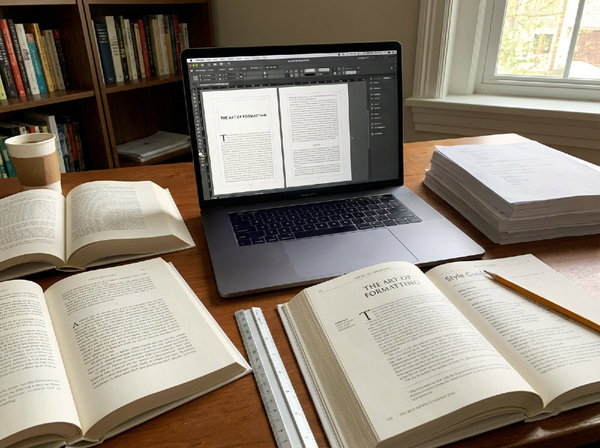10 Questions every Indie Author should reflect on before launching

10 Questions Every Indie Author Should Reflect On Before Launching
Why questions matter more than checklists
For indie authors, the excitement of publishing a book often comes with a flood of to-dos: formatting, cover design, uploading files, and planning a launch. But before you dive headfirst into the logistics, there’s a deeper layer that deserves your attention—reflection. The right questions can reveal blind spots, guide your decisions, and save you from disappointment down the line. Publishing is not just about pressing “publish”, it’s about clarity, alignment, and intention.
Here are ten essential questions every indie author should ask before launching, why they matter, and examples of how they play out in real author journeys.
1. Why am I publishing this book?
It may sound simple, but knowing your “why” is everything. Are you aiming for income, impact, legacy, or credibility? Your purpose will shape every choice, from your marketing approach to how you measure success. For instance, an author publishing a memoir to preserve family stories may only care about beautiful formatting and gifting copies, while a fantasy author aiming for career growth will focus on long-term branding and visibility.
2. Who am I writing for?
Every book has an audience, but not every audience is yours. Define your ideal reader—what they enjoy, where they spend time, and what motivates them. For example, a YA romance author might engage with BookTok communities, while a nonfiction author on productivity might build connections on LinkedIn. Knowing your reader helps you meet them where they are.
3. What does success look like to me?
Success means different things to different authors. For some, it’s selling 10,000 copies. For others, it’s hearing from five readers whose lives were touched. When indie author Colleen Hoover first published, her goal wasn’t bestseller status but connecting with romance readers—and her definition of success kept her motivated even before her sales exploded.
4. How will I handle the business side of publishing?
Being an indie author means being a creative and a business owner. Consider royalties, distribution, rights management, and taxes. For example, an author who ignored ISBN ownership later found they couldn’t easily republish their book under a new edition. Reflecting on the business side early prevents headaches later.
5. What’s my budget?
Publishing doesn’t have to break the bank, but it does require resources. Editing, cover design, and marketing are investments. For example, an author who skipped professional editing to save money often faces negative reviews, while another who invested in editing and a great cover sees higher reader trust and better sales.
6. Do I have a marketing plan?
Books don’t sell themselves. A strong marketing plan might include building a newsletter, growing a social media presence, or collaborating with other authors. One indie thriller author grew her readership significantly by setting up a pre-launch email list and sharing behind-the-scenes content weekly before her book came out.
7. How will I balance writing with promotion?
Many authors struggle to juggle creativity with marketing. Reflect on how much time you’re willing and able to dedicate to promotion. For instance, a children’s author who set aside Fridays for outreach while keeping weekdays for writing avoided burnout and still built consistent visibility.
8. Who’s in my support system?
Behind every successful author is a support system—editors, beta readers, fellow writers, or encouraging friends. Take bestselling indie author Hugh Howey: he relied heavily on early reader feedback and online writing forums before his breakout hit Wool. Support networks are what keep authors going when motivation dips.
9. How will I continue beyond this book?
One book can be powerful, but long-term success often comes from building a catalog. Romance authors, for example, often publish trilogies or series to keep readers hooked. Thinking ahead helps you plan your writing roadmap rather than feeling lost after launch.
10. Am I ready to be visible?
Publishing isn’t just about the book—it’s about you. Readers want to connect with the person behind the story. For example, when an introverted poet started sharing small pieces of her writing journey on Instagram, she discovered readers connected more with her vulnerable posts than her polished ads. That visibility helped her build a loyal following.
Bringing It All Together
These ten questions aren’t meant to overwhelm you—they’re meant to ground you. By taking time to reflect, you create a foundation that makes every other decision easier. Your answers can guide your cover design, your pricing, your marketing, and even your sense of fulfillment once the book is out.
Remember, publishing is not just a checklist—it’s a conversation with yourself and with your readers. The more honest you are with your answers, the stronger your launch will be.
Final Thoughts: Start With Reflection, Not Just Action
Before you hit publish, pause. Ask yourself these questions, write down your answers, and revisit them as you move through the process. You’ll find that the clarity they bring not only strengthens your launch but also builds confidence in your identity as an author.
At PubliWrite, we encourage indie authors to reflect before they publish. Our tools and community are built to help you move forward with purpose, strategy, and support. So take a moment—ask yourself the tough questions, and then share your journey with us. Because when you know your why, your who, and your how, your launch becomes more than an event—it becomes the start of something lasting.





